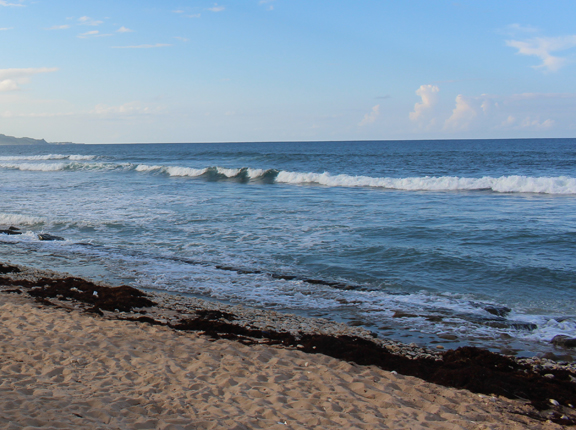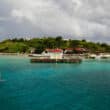By Dana Niland
CJ Contributor
The Caribbean Hotel and Tourism Association (CHTA) is working with its member 32 member National Hotel and Tourism Associations to educate hotels, government officials and stakeholders on mitigating the negative effects of high quantities of Sargassum seaweed at local beaches in the Caribbean.
Sargassum seaweed is used by over 250 species of fish and invertebrates as a habitat, nursery, feeding ground and a shelter, and though it poses no threat to humans, it is characterized by an unpleasant odor and appearance.
The Caribbean Alliance for Sustainable Tourism, in collaboration with OBM International, has complied a resource guide to help hotels develop a local action plan to manage the presence of Sargassum using environmentally-friendly methods, as well as resources to inform guests about the natural phenomenon.
It has been increasingly present at a number of Caribbean beaches, particularly those on Atlantic coasts.
“This initiative is a prime example of CHTA’s strategy to collectively share knowledge, experience and best practices in an effort to elevate Caribbean tourism across all islands,” said Emil Lee, president of the CHTA. “We are pleased to see various levels of government, hotel and community collaborations already underway to manage the Sargassum impact. Tackling this effectively requires an even greater collective effort, with government policies and resources coming into play.”
The CHTA advocates against the mechanical removal of the seaweed, which would represent a threat to the beach’s sand and marine life, but offers strategies for dealing with the Sargassum such as burying, manually transporting, or incorporating it into the landscale, as well as organizing beach clean-ups; educating residents, governments, and businesses about it; and incorporating it into culinary dishes.
The resource guide recommends that hotels create their own fact sheets about Sargassum for guests in order to highlight its importance to the ecosystem, including the role it plays for endangered and migratory species like sea turtles and whales.







